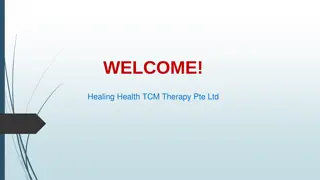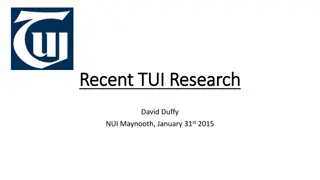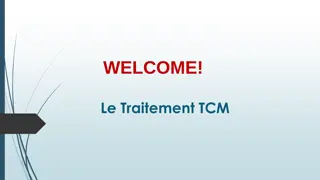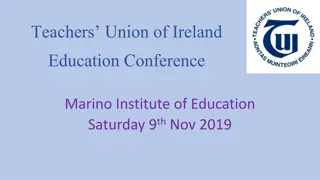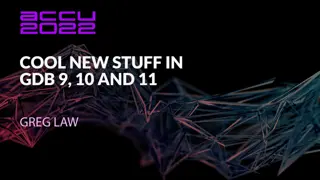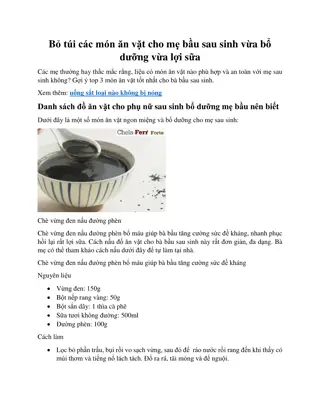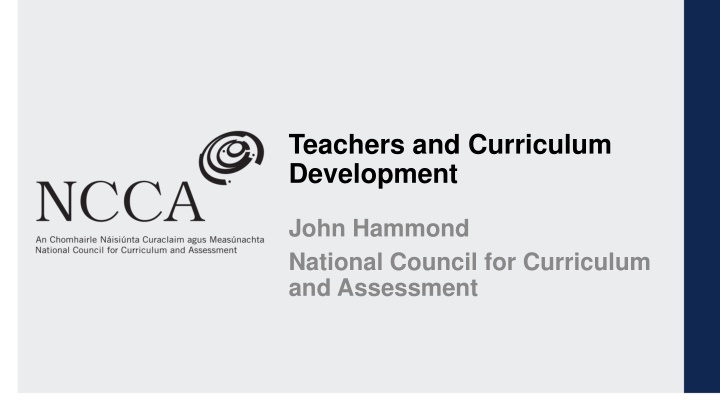
NCCA Curriculum Development: Strengthening Education Through Change and Collaboration
Collaborative efforts in curriculum development by NCCA focus on involving stakeholders, refining processes, and ensuring educational progressions. Explore the structures, strengths, and challenges faced in enhancing curriculum frameworks and educational practices in Ireland.
Download Presentation

Please find below an Image/Link to download the presentation.
The content on the website is provided AS IS for your information and personal use only. It may not be sold, licensed, or shared on other websites without obtaining consent from the author. If you encounter any issues during the download, it is possible that the publisher has removed the file from their server.
You are allowed to download the files provided on this website for personal or commercial use, subject to the condition that they are used lawfully. All files are the property of their respective owners.
The content on the website is provided AS IS for your information and personal use only. It may not be sold, licensed, or shared on other websites without obtaining consent from the author.
E N D
Presentation Transcript
Teachers and Curriculum Development John Hammond National Council for Curriculum and Assessment
Teachers and curriculum development Schools change reforms as much as reforms change schools Cuban (1998) The curriculum as a resource and a basis for building understanding of the change involved The teacher and the school as a key agent in mediating and enacting the resource The teacher as the key change agent and curriculum developer In Ireland, teachers are directly involved in curriculum development and reform at all levels
NCCA Statutory body Advises the Minister and Department of Education and Skills on curriculum and assessment in early childhood, primary and post-primary education Representative of stakeholders and education partners
Current curriculum developments Aistear a Framework for Primary Curriculum Early Childhood Education under review - introduction/enactment Curriculum development and schools Senior Cycle Curriculum Framework for Junior Cycle - under review Ongoing introduction/enactment
5 NCCA s work on curriculum development Researching Consulting Advice Deliberating Networking
NCCA curriculum development structures and process - perceived strengths and weaknesses Strengths Weaknesses Buy-in from stakeholders Representative nature - voices from across the education system are heard Path to introduction of change can be smoother and more easily negotiated Too much compromise on key principles what emerges a pale imitation from what was envisaged or what was possible Takes too long? Not enough time? Power dynamics within boards and groups the voices most heard
Developing features of NCCA curriculum development work Establishing an evidence base Clarifying vision and purposes Pursuing continuity and progression across sectors Using curriculum frameworks Clarity around learning use of learning outcomes Supporting practice through exemplification Moving towards more cyclical, systemic review
Conditions conducive to curriculum development Stakeholder engagement and communication Shared vision and purpose Research, data and information Timing and pacing Securing Resources Feasibility and Capacity building Recognising teacher and school agency Cyclical, systemic review Model of CPD
Conditions conducive to curriculum development More than involvement Mutual trust Clear and frequent communication Public dialogue Stakeholder engagement and communication
Conditions conducive to curriculum development Time and pacing Complementary policy alignment Securing Resources
Conditions conducive to curriculum development Existing knowledge/skills Multiple levels ITE to classroom materials Feasibility and Capacity- building
Conditions conducive to curriculum development Continual Well-resourced School and network-based Specific and capacity- building Aligned Mutual adaptation/local enactment Model of CPD
Conditions conducive to curriculum development Teacher and school agency Real devolution Real uptake Endorsement and support
The most successful education systems invest in developing their teachers as reflective, accomplished and enquiring professionals who are able to teach successfully in relation to current expectations, but who have the capacity to engage fully with the complexities of education and to be key actors in shaping and leading educational change. Donaldson 2011







